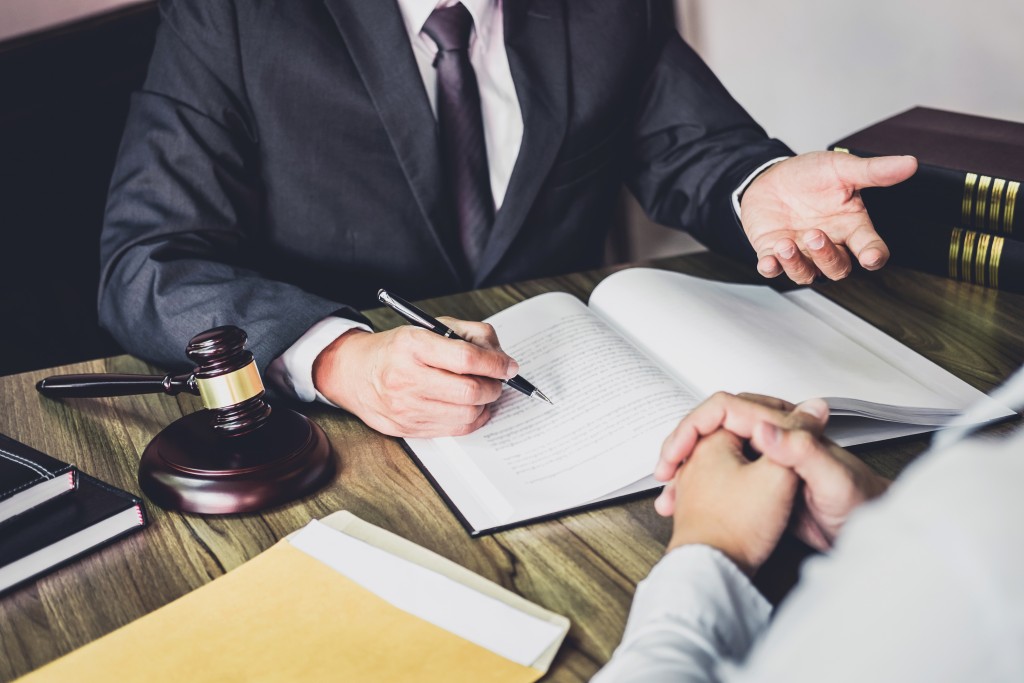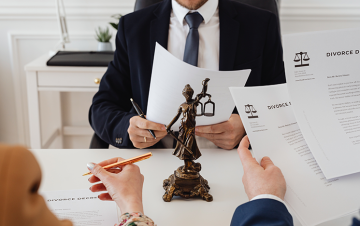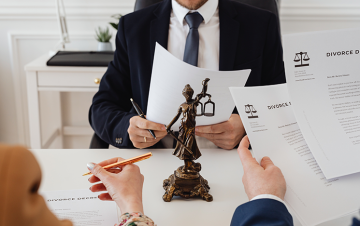I am studying in the third year of the State University of Economics and Technology.I specialize in contractual, economic and corporate law, in particular, I provide consultations and write articles.
Appropriation, waste of property or taking possession of it by abuse of official position
These actions belong to the category of crimes affecting the official activities of persons who have certain duties and rights in connection with the performance of their official functions. They involve the use of an official position for unlawfully obtaining benefits or harming other persons.
Composition of a criminal offence:
- Appropriation of someone else's property: Appropriation consists in the illegal and gratuitous removal (withholding, non-return) of someone else's property, which was in the lawful possession of the guilty party. The culprit intends to turn the property to his advantage. Appropriation is considered complete when the offender has the opportunity to dispose of the property as his own, that is, after the actual seizure of the property.
- Waste of someone else's property: Waste involves illegal and gratuitous spending, consumption, sale, gratuitous transfer, exchange or transfer of property to repay a debt. The property must be entrusted to a person or be in his trust. Embezzlement is considered complete at the moment of spending or transferring someone else's property, that is, when the property is no longer in the possession of a person.
- Appropriation of someone else's property by abuse of official position: Appropriation occurs when an official illegally uses his official position to turn over someone else's property for his own benefit or that of third parties. This crime is completed from the moment of obtaining the opportunity to dispose of the property at one's discretion.
Question
Who can be the subject of this offense?
Answer
A person must be sane, that is, able to be aware of his actions and control them, and also not be under the influence of mental illnesses or conditions that may affect his ability to bear criminal responsibility. The person must be older than 16 years. In order to incur criminal liability, a person must have the right to possess, use or dispose of property. It can be both entrusted property and property that is under the management of a person on the basis of other legal grounds.
Question
Does the motive and purpose of the offense matter?
Answer
In order to find a person guilty of committing such offenses, it is necessary to prove that the guilty party acted with the intention of misappropriating, squandering or taking possession of someone else's property using his official position. Beneficial motive in the context of Art. 191 of the Criminal Code is defined as the desire for personal gain or material benefit. It can be a desire to receive material goods (money, property) or other benefits that have a certain value for a person.
Defense strategies in criminal proceedings:
Defense in a case under the articles of the Criminal Code of Ukraine, which provide for the appropriation, embezzlement or possession of someone else's property by abuse of official position (Article 191 of the Criminal Code of Ukraine), is a complex and multifaceted process. Defense strategies may vary depending on the specific circumstances of the case, the evidence base, and the qualification of the crime. Here are some basic strategies that can be used to protect yourself:
- Inadmissibility of evidence: Challenging the admissibility and credibility of evidence presented by the prosecution. This may include checking documents, testimony and other materials.
- Incorrectness of the circumstances of the case: Proving that the property was not entrusted to a person, or that it was not in his possession.
- Alternative Qualifications: Propose a different, less severe qualification for the actions that may be less severely punished.
- Illegality of Searches or Seizures: Challenging the legality of the procedures used to gather evidence.
- Non-compliance with procedural norms: Point out the violation of the rights of the accused during the investigation or trial.
- Failure to observe the rights to defense: Prove that the accused did not have the opportunity to exercise his right to defense.
- Damage compensation: Offer to compensate the victims for the damage caused, which may influence the court's decision to reduce the punishment.
- Bargaining with the prosecutor: Negotiating a plea deal involving a reduced sentence in exchange for a guilty plea.
- Financial and accounting reports: Engage independent experts to evaluate financial documents and confirm or deny facts of embezzlement or misappropriation.
- Testimony of witnesses: Provide testimony or documents confirming the legality of the accused's actions.
Legal assistance of a lawyer in criminal cases
The services of a lawyer in criminal cases are critically important for ensuring the rights and legitimate interests of the accused, the victim or other participants in the process. A lawyer in a criminal case provides legal assistance from the moment of arrest until the case is concluded. This is how the legal assistance of a lawyer in criminal cases can be useful:
Consultation of a lawyer in a criminal case: A lawyer in a criminal case provides legal advice on the client's rights and obligations, possible consequences and defense strategies. Explanation of the process of criminal proceedings and legal protection. Drafting statements about the illegality of the actions of law enforcement agencies, complaints about the actions of investigators, prosecutors or judges. Organization of the collection of documents and evidence that may be useful for the defense.
Lawyer in criminal cases during detention and investigative actions: The criminal lawyer will provide information about the rights of the detainee and the necessary consultations. Will provide representation during interrogations, pre-trial inspections and other actions of law enforcement agencies. Filing appeals against an arrest or restraining order, if one has been imposed.
Assistance of a lawyer in a criminal case with representation: In court, during the consideration of petitions for the selection of a preventive measure, a criminal law lawyer will represent the interests of the client. Organization and conduct of examinations necessary to confirm or refute accusations. Verification of evidence collected by the investigation and preparation of exculpatory evidence.
Participation of a lawyer in criminal proceedings: development of a defense strategy, preparation of necessary documents and objections. Submission of requests for questioning of witnesses, exclusion of evidence, etc. Representation in court sessions, presentation of evidence, speeches in court.
Criminal lawyers play an important role in providing legal protection throughout the criminal proceedings. Both the rights of the accused and the outcome of the case as a whole depend on the quality of legal support. An crime lawyer understanding of the process, competence, and strategic thinking are critical to achieving a fair outcome.
Contact the CONSULTANT legal marketplace - we are always there to help you solve any legal problem. Leave your number and get legal help right now. Do not waste your time, our lawyers are already waiting for your call!
































